⚡ZurzAI.com⚡
Companies Similar to Nuro
Zoox

Zoox is revolutionizing transportation with fully autonomous, all-electric robotaxis, focusing on safety, reducing human error, and enhancing the riding experience while lowering congestion and pollution.
About | About | Contact | News | Careers | About | About | About | News | Careers | About | Vision/Values
Zoox Company Overview
1. Key Focus Area: Zoox is concentrating on developing an autonomous ride-hailing service. Their primary product is an all-electric, fully autonomous robotaxi designed to operate in dense urban environments. Their goal is to address the issues of traffic congestion, pollution, and road safety by removing the human factor in driving and leveraging advanced AI for vehicle operations.
2. Unique Value Proposition and Strategic Advantage: Zoox positions itself as an innovator by designing its vehicle from the ground up rather than retrofitting existing car models. This approach allows Zoox to integrate safety and autonomous technology more thoroughly. Notably, their robotaxi is devoid of typical manual controls, appealing to a future-forward mobility vision. Their strategic partnership with Amazon supports them in achieving this vision, providing them with resources to enhance their vehicle technology and market position.
3. Delivery on Value Proposition:
-
Innovative Design: Zoox emphasizes a rider-focused design, offering a spacious, symmetrical cabin without the traditional driver seat or steering wheel, providing equal comfort to every occupant.
-
Advanced Autonomy: Zoox's approach to autonomy involves developing and testing in-house hardware and software to create a refined driving experience. This includes an extensive sensory system with a 360-degree field of view, facilitating comprehensive environmental perception and decision-making.
-
Safety Focus: Zoox highlights a safety-first approach, with their vehicle featuring more than 100 unique safety innovations inspired by aviation industry standards. This includes comprehensive airbag systems and extensive testing protocols aimed at surpassing ordinary vehicle safety requirements.
-
Environmental Commitment: Aligning with sustainability, Zoox vehicles are all-electric, aimed at minimizing emissions. By owning and operating their fleet, they seek to reduce the environmental footprint, enhance vehicle use efficiency, and contribute to transformative urban mobility.
-
Community Engagement: Zoox actively engages with communities where its services are tested and launched, ensuring transparency and collaboration with local authorities and residents. This includes hosting events to showcase their robotaxi and gain community insights.
These elements combine to position Zoox not only as a technological innovator but as a company striving to redefine urban mobility through a holistic, safety-oriented, and sustainable approach.
Wayve
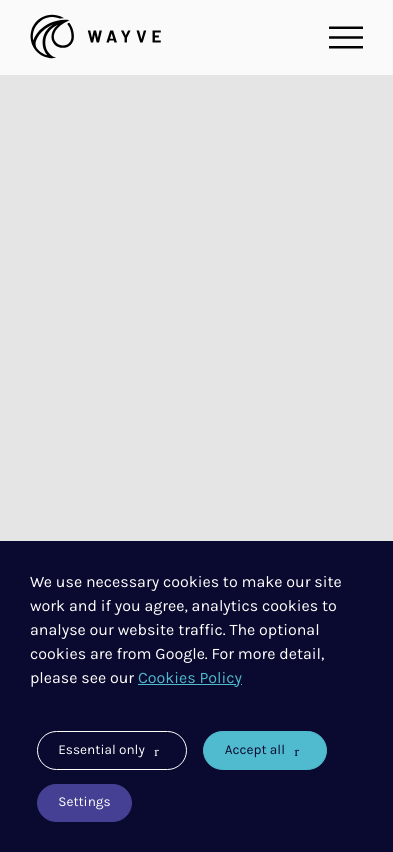
Wayve develops AI technology for autonomous driving, raising over $1 billion for its innovative, scalable Wayve AI Driver, and securing investments from SoftBank and Uber.
About | About | About | Locations | About | News | Contact | Careers | Careers | Careers | Careers | Careers | Leadership | About | About | About | Vision/Values | Leadership | Leadership | Leadership | Leadership | Leadership | Leadership | Leadership | Leadership | Leadership | About | Leadership | About
Wayve AI focuses on developing advanced autonomous driving technology through its innovative application of Embodied AI, a holistic approach where AI learns from and interacts with real-world environments. The company’s core mission is to redefine how autonomy is perceived and implemented in the automotive industry by enabling vehicles to perceive, predict, and react to dynamic real-life scenarios with enhanced intuitive understanding and safety.
Strategic Focus and Unique Value Proposition:
-
Embodied AI for Autonomy: Wayve’s key strategic focus area is the development of end-to-end AI solutions for autonomous vehicles (AVs), leveraging Embodied AI’s capability to dynamically learn and interact with real-world scenarios. This approach attempts to simulate a human-like driving experience that generalizes better across diverse environments without the need for HD maps.
-
Universal Compatibility and Scalability: The company is creating AI software that does not depend on specific hardware or HD maps, making it adaptable across various vehicle types and geographies. This universality offers substantial flexibility and scalability, crucial for quick integration across different vehicle models and geographic locations.
-
AV2.0 Approach: Wayve’s advancement to AV2.0 claims to leapfrog traditional autonomy models by utilizing data-driven, self-supervised learning that circumvents the high costs and limitations of extensive labeled datasets and rigid planning modules.
Delivering on the Value Proposition:
-
Wayve AI Driver: Wayve offers the AI Driver software designed to enhance driving automation from basic assistance (L2+) to advanced autonomous capabilities (L4). This platform allows for mapless, hardware-agnostic functionalities, aiming to streamline integration processes for automakers and fleet managers.
-
Fleet Learning Loop: The company employs a fleet learning loop that continuously improves the AI's driving capabilities through real-time data processing, training, and model evaluations, using a robust cloud infrastructure that supports global operations.
-
Safety 2.0 Framework: Safety is integrated into Wayve’s AI through its Safety 2.0 framework, which prioritizes generating introspectable and safe driving responses. It leverages generative AI to predict and react efficiently to unexpected driving scenarios, reinforcing AI safety mechanisms through comprehensive data analytics.
-
Generative AI Models: Wayve’s advancements include GAIA and LINGO models, which enhance the AI’s understanding of driving environments and natural language processing, respectively. These models are intended to improve decision-making and reasoning transparency, while accelerating autonomous vehicle training with realistic driving simulations.
-
Partnerships and Collaborations: The company collaborates with industry leaders such as Microsoft for supercomputing capabilities and fleet operators like Ocado and Asda to trial its AI in real-world applications. This strategy helps in accumulating diverse operational data, further refining its AI models.
Wayve’s strategic advantage revolves around its adaptable and scalable AI solutions that aim to transform the automotive industry’s approach to autonomy, pushing boundaries in the realms of safety, efficiency, and user adaptability. Through continuous research and partnerships, Wayve seeks to pioneer autonomous technology that can be seamlessly adapted across varying global markets and needs.
Serve Robotics
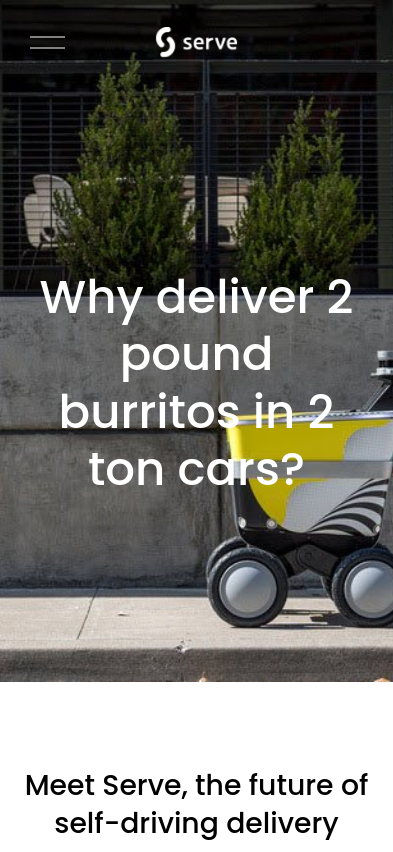
Serve, a self-driving delivery robot company, announces a public offering, secures $30 million in funding, and partners with Uber to deploy 2,000 robots.
About | About | About | About | About | About | About | About | About | About | About | About | About | News | About | About
Serve Robotics is focused on developing and deploying advanced, AI-powered sidewalk delivery robots aimed at revolutionizing the delivery industry. Their key focus area is creating sustainable, self-driving delivery solutions that aim to make urban environments more efficient and less reliant on conventional vehicles, which often contribute to traffic congestion and pollution.
Unique Value Proposition and Strategic Advantage:
- Serve Robotics offers a unique solution to the last-mile delivery challenge by deploying zero-emissions robots.
- Their strategic advantage lies in a robust partnership with Uber, which facilitates the scaling of their technology across various markets in the U.S.
- They have raised significant capital and have backing from entities like Uber and NVIDIA, which enhances their growth potential and market reach.
How They Deliver Their Value Proposition:
- Technology-Driven Delivery: Serve Robotics utilizes AI-powered robots that navigate sidewalks to deliver orders, primarily through existing partnerships with platforms like Uber Eats and 7-Eleven. Their robots are designed to securely deliver items to customers while being monitored in real-time by trained pilots.
- Strategic Expansion: With a commercial agreement to put up to 2,000 robots into service for Uber Eats, Serve is scaling up its operations in multiple urban markets. Their approach leverages existing platforms to ensure a seamless integration and deployment in densely populated areas.
- Sustainability and Innovation: Emphasizing a zero-emissions footprint, their deployment aims to reduce vehicle miles traveled by cars, thus contributing to decreased CO2 emissions and less traffic congestion. This is particularly critical in urban landscapes where car-based deliveries are still the norm.
- Engagement and Partnerships: Serve has established multiyear contracts allowing a wide rollout of its delivery robots. Strategic investments from organizations like Uber and collaborations with companies such as Magna and NVIDIA enable Serve to use cutting-edge technology to enhance capabilities and operational efficiencies.
- Visibility and Public Presence: Through unique partnerships, such as those with Uber Eats and appearance in pop culture references such as "Everybody’s in L.A.," Serve aims to capture public interest and gain traction in new markets. This helps in building brand recognition and fostering market expansion.
Serve Robotics, with its focus on sustainable and autonomous delivery solutions, aims to transform urban logistics by increasing efficiency and reducing reliance on traditional delivery methods. Their strategic partnerships and innovative technology serve as key drivers for future growth and market penetration. However, it's important to note that while their technology presents innovative solutions, success will depend on overcoming operational, regulatory, and competitive challenges in the evolving delivery and logistics landscape.
DataRobot

DataRobot offers AI applications and platforms that enhance business impact and reduce risk, helping companies innovate and optimize operations with proven success stories.
DataRobot Summary
-
Key Focus Area: DataRobot specializes in delivering AI applications and platforms tailored for enterprise environments. Its focus is on enabling businesses across various industries such as energy, financial services, healthcare, manufacturing, and the public sector to develop, deliver, and govern generative and predictive AI at scale. It aims to integrate AI into core business processes, enhancing efficiency and innovation.
-
Unique Value Proposition and Strategic Advantage: DataRobot's unique value proposition lies in its comprehensive integrated solutions within the AI ecosystem:
- Integrated AI Suite: Combines generative and predictive AI frameworks with a focus on AI governance and observability.
- Enterprise-Grade Features: Its platform offers tools for building custom AI solutions that integrate smoothly with existing business processes.
- Automation and Efficiency: Clearly emphasizes a reduction in time-to-value for AI deployment by providing pre-built tools to automate AI application delivery.
-
How They Deliver on Their Value Proposition: DataRobot delivers its value proposition through a series of strategic implementations:
- Modular Yet Unified Platform: The AI platform includes a suite of applications and tools like Enterprise AI Suite, AI Apps, and AI Foundation for integrating and managing AI efficiently.
- Comprehensive Governance Framework: Ensures compliance and risk management by automating documentation and providing built-in guardrails for models, supporting various AI regulations.
- Customer Focused Solutions: The platform is industry-agnostic and supports adaptability across energy, healthcare, financial services, etc., with custom deployments tailored to client needs.
- Edge Deployment and Real-Time Monitoring: DataRobot allows for deploying AI models on the edge, delivering real-time anomaly detection and operational monitoring.
- Support Services: Offers services including quick-start programs and AI development workshops to facilitate the adoption and integration of AI capabilities within business frameworks.
In summary, DataRobot focuses on empowering businesses with scalable and secure AI solutions. Its strategic advantage is its integrated platform that simplifies AI application development and governance, allowing organizations to harness AI’s potential while managing risks and compliance efficiently. Using a mix of generative and predictive AI, it addresses diverse business needs, offering tools to optimize processes from operational efficiencies to enhancing customer experiences.
Nuro

Nuro is evolving from delivery bots to robotaxis and autonomous vehicles, focusing on adaptable AI solutions and prioritizing safety in its innovative mobility approach.
Nuro's key focus area is the advancement of autonomous driving technology, particularly aimed at revolutionizing personal mobility and logistics. The company offers solutions for various mobility platforms including robotaxis, personally owned autonomous vehicles, and logistics services. They emphasize the deployment and refinement of Level 4 (L4) autonomous driving technology, with a commitment to safety and operational efficiency.
Nuro's unique value proposition lies in its adaptable, AI-first approach to autonomy, offering scalable solutions across different vehicle platforms and sectors. They leverage their technology to provide full autonomous capabilities in sectors such as ride-hailing, personal automotive use, and logistics, focusing on reducing operational costs and enhancing service efficiency.
Key elements of their strategic advantage include:
- Scalable AI-First Autonomy: Nuro's technology supports various levels of autonomy from driver-assist features (L2) to full self-driving capabilities (L4), adaptable to different customers’ needs including OEMs in the automotive sector.
- Proven Track Record: The Nuro Driver™ has been operational across multiple states in the U.S., showcasing a significant safety record with millions of autonomous miles driven without reported at-fault incidents.
- Safety Centric Development: By embedding safety into every phase of product development and deployment, from initial system designs through rigorous testing and validation, they emphasize the trustworthiness of their solutions.
Nuro delivers on their value proposition through a combination of innovative AI technologies and strategic business approaches:
- Advanced AI and Mapping Technologies: They integrate real-time AI-driven mapping and sophisticated perception systems to enable safe and efficient vehicle operations in complex urban environments.
- Infrastructure and Tooling Support: The Nuro AI Platform™ enhances developer capabilities with robust tools for simulation, validation, and analytics, ensuring continuous improvement and high-performance standards.
- Partnership Strategy: By collaborating with commercial mobility providers and OEMs, Nuro extends its capabilities, offering flexible deployment options to various industry partners.
- Commitment to Safety and Community Engagement: Nuro ensures that safety is at the forefront of their operations, with redundant systems and proactive community engagement to address safety concerns and maintain trust.
Nuro continues to adapt and expand its business model by licensing its autonomous driving technology, allowing other companies to integrate their AI systems into different vehicle types and mobility services. They aim to play a crucial role in the future of transportation, driven by a vision of making robotics and AI an integral part of everyday life, enhancing mobility, safety, and efficiency across sectors.
Aurora Innovation

The Aurora Driver aims to enhance safety and efficiency in logistics through advanced autonomous driving technology, collaborating with partners like Volvo for deployment.
About | About | About | About | About | About | About | Contact | About | About | About | About | About | Leadership | Directors | Leadership | About | About | About | News
Key Focus Area:
Aurora's primary focus is on developing self-driving technology, particularly the Aurora Driver, which is aimed at revolutionizing transportation for both freight and passenger services. The company advocates for a future where autonomous driving enhances safety, reliability, and efficiency on roads while addressing key challenges in logistics and personal transportation.
Unique Value Proposition and Strategic Advantage:
Aurora's unique selling proposition lies in its purpose-built autonomous driving system, the Aurora Driver, which is designed to seamlessly integrate into a diverse set of vehicles, from trucking to ride-hailing cars. This innovation allows the company to cater to multiple segments within the transportation sector.
-
Partnerships: Aurora has established strategic collaborations with prominent players across the automotive and logistics industries, including Toyota, Uber, PACCAR, and Volvo. These partnerships are central to its development and scaling strategy.
-
Technological Edge: The system uses advanced technologies such as FirstLight Lidar for enhanced visibility and a custom computing platform for efficient processing. The focus on high-definition mapping, simulation, and motion planning ensures that their system is continuously evolving and improving.
-
Safety Framework: Aurora places a heavy emphasis on safety, backed by its comprehensive Safety Case Framework. This structured approach, alongside partnerships with safety advisory boards, aligns with its promise to advance the safety standards in autonomous vehicle technology.
Delivery on Value Proposition:
Aurora seeks to execute its strategy of making autonomous transportation viable and impactful through several key initiatives:
-
Technology Integration: By closely working with vehicle manufacturers, Aurora ensures deep integration of its driver technology to foster an autonomy-ready infrastructure. This integration is fundamental in efficiently deploying its technology on a large scale.
-
Operational Efficiencies: The autonomous freight service aims to mitigate current logistics challenges such as driver shortages and inconsistent driver supply. By eliminating traditional operational constraints, their system is built to improve logistic network efficiencies and cover substantial geographic territories promptly.
-
Adaptation and Growth: Aurora is actively involved in pilot programs with logistic companies to fit its service to specific business needs, allowing gradual adaptation of fleets to autonomous solutions. Additionally, it is continually training its Aurora Driver system through real and virtual world scenarios to strengthen its reactive capabilities.
-
Expanding Market Presence: The company is not only scaling its technologies for trucks but also progressing towards autonomous ride-hailing, facilitated by notable partnerships with Uber and Toyota. These projects focus on reducing the stress and cost of transportation, making mobility more accessible and equitable.
Overall, Aurora’s strategic approach is built on robust technology, collaboration with industry leaders, and an unwavering commitment to safety, positioning them as players pushing the boundaries of autonomous transport solutions.
Pony.ai

Pony.ai is advancing safe autonomous driving technology globally, focusing on Robotaxi, Robotruck, and Personally Owned Vehicles, with extensive testing and innovation since 2016.
Overview of Pony.ai
1. Company's Key Focus Area Pony.ai concentrates on the development of autonomous driving technologies. The company's primary mission is to ensure the safety and reliability of autonomous vehicles, harnessing the advancements in artificial intelligence. Their operations span across multiple geographic regions, including the US and China, where they focus on navigating complex road scenarios.
2. Unique Value Proposition and Strategic Advantage Pony.ai's unique value proposition lies in its full-stack autonomous driving technology called the "virtual driver," which can be integrated across diverse vehicle platforms. This technology serves as the backbone of their product offering, enabling a range of solutions like Robotaxis, Robotrucks, and systems for Personally Owned Vehicles (POVs). The company leverages partnerships with major automotive manufacturers like Toyota to enhance their market reach and technical capabilities. Their strategic advantage is supported by a comprehensive safety guarantee, multiple redundancies in both software and hardware, and a focus on regulatory compliance, critical in scaling operations in various urban environments.
3. Delivery on Their Value Proposition To fulfill their value proposition, Pony.ai employs several strategic moves:
-
Technology Development: Pony.ai develops comprehensive autonomous driving solutions by deploying and testing the technology across challenging road conditions in China and the US. Their emphasis is on sensor fusion technology, combining data from lidar, radar, and cameras to ensure high-precision perception and control.
-
Safety Measures: The company stresses safety, adopting ISO 26262 safety standards. It has established a multi-layered safety system with over a thousand monitoring mechanisms and redundant systems in hardware, software, and vehicle platforms. These redundancies ensure continuous operational safety even in cases of partial system failures.
-
Commercial Deployment: Through strategic joint ventures, such as with Toyota in China, Pony.ai accelerates the mass deployment of their Robotaxi fleets. Furthermore, they are expanding their Robotruck operations, optimizing logistics with platooning technology, which is aimed at improving efficiency and reducing operational costs.
-
Application in Various Sectors: Pony.ai's autonomous technology is aligned with a wide range of automotive applications, from urban Robotaxis to long-distance freight deliveries via Robotrucks, and intelligent driving solutions for individual car owners. Their diversified portfolio caters to emerging mobility needs across different sectors.
-
Engagement with Regulatory Bodies: The company actively works to obtain necessary regulatory approvals, ensuring public-facing operations. This regulatory foresight enables them to scale their operations while maintaining compliance with local laws.
In summary, Pony.ai focuses on deploying safe and reliable autonomous driving solutions through technological innovation, partnerships, and strategic market expansion across various transportation sectors. By prioritizing safety and heavily investing in cutting-edge technologies, they aim to play a significant role in the evolving landscape of global autonomous mobility.
Momenta

Momenta specializes in autonomous driving technology, offering scalable solutions for both mass-production vehicles and robotaxi services, focusing on safety and efficient urban mobility.
Momenta's Key Focus Area
Momenta positions itself prominently within the autonomous driving technology space, emphasizing the creation of solutions for a wide range of driving autonomy, from Level 2 to potential future advancements towards Level 4. Their ambition is reflected in two main product offerings: Mpilot, aimed at mass production vehicles, and MSD, focused on full autonomy for robotaxis. This dual emphasis underscores their commitment to enhancing both consumer and urban mobility through scalable autonomous solutions.
Unique Value Proposition and Strategic Advantage
Momenta's strategic advantage lies in its "flywheel approach," which combines a data-driven development methodology with continuous algorithm enhancements. This approach is strengthened by their "two-leg" product strategy:
- Mass Production Solutions: These solutions cater to various market segments by being adaptable across different vehicle models and supporting a comprehensive spectrum of autonomous driving features from Level 2 to future Levels 3 and 4.
- Scalable Robotaxi Services: Strategically designed to navigate complex urban environments efficiently, these are tailored for supporting urban mobility through autonomous solutions.
Delivery on Value Proposition
To deliver on its value proposition, Momenta employs several strategic practices:
- Data-Driven Technology: Their technology relies on extensive data collection from mass-produced cars to refine the models they operate, ensuring that their systems remain robust across diversified scenarios.
- Advanced Algorithm Models: Momenta utilizes a large end-to-end big model that simulates human long-term memory capabilities, coupled with short-term memory algorithms to minimize training costs while maintaining high-quality training data.
- Collaborations and Partnerships: Notably, Momenta collaborates with major automotive manufacturers such as General Motors, Toyota, and Mercedes-Benz, integrating their self-driving technology solutions within these auto giants' models tailored specifically for select markets, primarily targeting the Chinese automotive sector.
- Closed-Loop Automation: Through efficient data processing systems referred to as CLA (Closed Loop Automation), they target continual technology refinements. This approach involves automating the processing, filtering, and labeling of vast data sets to expedite the improvement of their autonomous driving solutions.
Momenta also supports their strategy through partnerships that facilitate data feedback loops and reinforce product customization. Their partnerships with original equipment manufacturers (OEMs) and shared mobility companies aim to expedite scalable robotaxi deployment and offer a variety of autonomous driving options embedded within commercially available vehicles.
In summary, Momenta is dedicated to advancing autonomous driving technologies with broad market adaptability and an integrated partnership approach, driving towards full market realization and broad application of their AI-driven mobility solutions.
Five AI

Bosch enhances automated driving software development by acquiring Five, aiming to accelerate innovation and improve autonomous vehicle technology.
- Key Focus Area:
Five.ai specializes in the development of autonomous vehicle technologies. The company's efforts are concentrated on creating systems that enhance the safety and performance of Autonomous Driving Systems (ADS). This involves developing platforms for faster and efficient autonomous vehicle development and ensuring safety through simulation testing, real-world analysis, and offline testing of Advanced Driver Assistance Systems (ADAS).
- Unique Value Proposition and Strategic Advantage:
Five.ai's value proposition lies in their platform designed for autonomous vehicle development, which emphasizes speed and safety assurance. Their competitive edge is achieved through:
- Scenario Simulation and Testing: Five.ai offers advanced simulation capabilities where diverse and complex scenarios can be created and tested. This allows for identifying potential faults and validating safety before public deployment.
- Scalability: Their system allows testing on thousands of traffic scenarios, enabling a comprehensive evaluation of systems under various conditions.
- Efficient Resource Utilization: Through simulations, Five.ai reduces the need for costly real-world fleets, thereby lowering development costs.
- Rule-Based Evaluation Framework: This ensures rigorous analysis of test simulations centered on specified requirements, fostering robust design iterations.
- Delivery on Value Proposition:
Five.ai delivers on its value proposition through several strategic implementations:
- Testing Environments and Workflows: They provide a robust infrastructure for large-scale tests covering development, progression, and regression testing. There's an emphasis on automating Continuous Integration (CI) tests.
- Real-World Triage and Assessment: Five.ai evaluates real-world drives, analyzing data to detect significant events accurately and efficiently.
- Research and Development: Five.ai maintains active research collaborations and continually publishes findings in AI and Machine Learning fields, indicating ongoing advancements in object detection, planning, and decision-making for autonomous vehicles.
- Innovative Technologies: Their adoption of recent methodologies, such as Self-Aware Object Detection and probabilistic models like DiPA for multi-modal prediction, exemplifies a focus on technological innovation to handle complex, dynamic urban driving scenarios.
In essence, Five.ai’s offerings are structured to provide a comprehensive ecosystem for autonomous vehicle testing and development characterized by efficiency, scalability, and safety assurance, underpinned by active research and cutting-edge simulation technologies.
Starship Technologies

Starship is transforming last-mile delivery with 99% autonomous robots, enhancing efficiency and sustainability while serving thousands daily across universities and grocery partnerships.
Starship Technologies is a company focused on revolutionizing last-mile delivery with autonomous robots. Their central aim is to make delivery services more affordable, accessible, and sustainable globally by using electric, battery-powered robots. These robots are designed to handle a variety of delivery needs, including groceries, hot food, and industrial supplies, all while reducing emissions and lessening traffic congestion.
Unique Value Proposition and Strategic Advantage:
- Starship Technologies distinguishes itself through its innovative use of autonomous robots that are predominantly self-driving (99% autonomy). They utilize advanced technologies like radars, cameras, sensors, and machine learning to navigate safely and efficiently.
- The company's robots operate using Level 4 autonomy, which implies minimal human intervention during deliveries. They have performed over seven million deliveries, surpassing their competitors significantly.
- Starship partners with a wide array of entities, including university campuses, grocery retailers, delivery apps, and industrial sites, offering a cost-effective solution that combines convenience with sustainability.
Delivering Their Value Proposition:
- Starship ensures seamless integration with partners, allowing their autonomous delivery robots to function across various applications, from fulfilling delivery roles in campus dining programs to hyper-local grocery deliveries, and even advertising roles with custom branding opportunities.
- The technology behind Starship robots includes a comprehensive suite of sensors, capable of obstacle detection and navigation in various environments, from pedestrian sidewalks to snowy conditions, ensuring flexibility and reliability. Autonomous robots are equipped with insulated compartments to maintain the temperature of items during transit.
- The robots are designed to engage users interactively, capable of playing music during deliveries and allowing customization of delivery features through apps. This level of personalization enhances customer satisfaction and engagement.
- Operational support includes wireless charging stations for sustainable energy use, and a solution that can integrate with existing business platforms for easy setup.
- By offering an accessible and contactless delivery service, these robots meet the needs of individuals with mobility challenges and reduce human dependency, thereby helping alleviate staffing pressures in businesses.
Starship Technologies’ strategic advantage hinges on its innovative deployment of autonomous technology to redefine local delivery logistics, aligning economic opportunities with sustainability goals. Clients can expect efficient and environmentally friendly delivery solutions that integrate smoothly into existing operations, backed by consistent service and ongoing technological enhancements.
Rasa
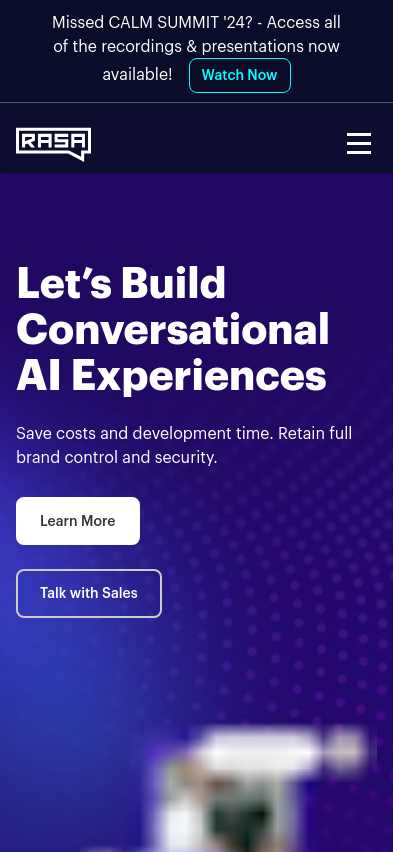
Rasa provides an innovative, no-code framework for building advanced conversational AI assistants, focusing on ease of use, security, and scalability while enhancing customer experience.
Summary for Executive Audience: Rasa Technologies
-
Company's Key Focus Area: Rasa Technologies primarily focuses on developing sophisticated conversational AI solutions. Their core offering enables enterprises to create and deploy virtual assistants that facilitate seamless interaction between organizations and their customers. This focus is encapsulated in their multi-faceted approach, incorporating both text and voice-based AI systems that operate on a global scale.
-
Unique Value Proposition and Strategic Advantage:
- Conversational AI Infrastructure: Rasa provides an open-core framework tailored for enterprises, leveraging generative AI to create complex conversational experiences. This strategic advantage allows enterprises to develop AI that comprehends and adapts to the nuances of natural language, while ensuring compliance with existing regulations.
- Modular and Extensible Platform: Their architecture allows for extensive customization, facilitating integration with existing systems and deployment in various environments. This approach provides companies the flexibility to scale and personalize AI solutions without being restricted by vendor-specific constraints.
- Delivery on Value Proposition:
- Product Offering: Rasa delivers its value through a suite of products, including Rasa Pro, which is designed for robust conversational AI development. The platform supports deployment in secure, scalable environments and handles high-volume customer interactions.
- No-code User Interface: Rasa Studio enhances cross-department collaboration by offering a no-code UI for designing, testing, and optimizing AI systems. This empowers diverse teams to engage with the platform, streamlining the AI development process.
- Data Sovereignty and Compliance: Rasa allows enterprises to maintain control over their data, minimizing privacy risks by enabling deployments within their own infrastructure or private clouds. This is particularly advantageous for industries with strict compliance requirements.
- Conversational Development Methodology: Their conversation-driven development approach focuses on iterating AI solutions through real user interaction, ensuring alignment with customer needs and language use. By utilizing a data-driven cycle of design, testing, and refinement, Rasa supports the continuous improvement of their clients' virtual assistants.
Conclusion: Through a combination of sophisticated AI infrastructure, flexible deployment options, and a conversation-driven methodology, Rasa Technologies positions itself as a viable option for enterprises seeking to enhance their digital interaction channels. They aim to transform customer experiences by enabling tailored AI solutions that align with organizational objectives and regulatory demands.
RoboK Limited
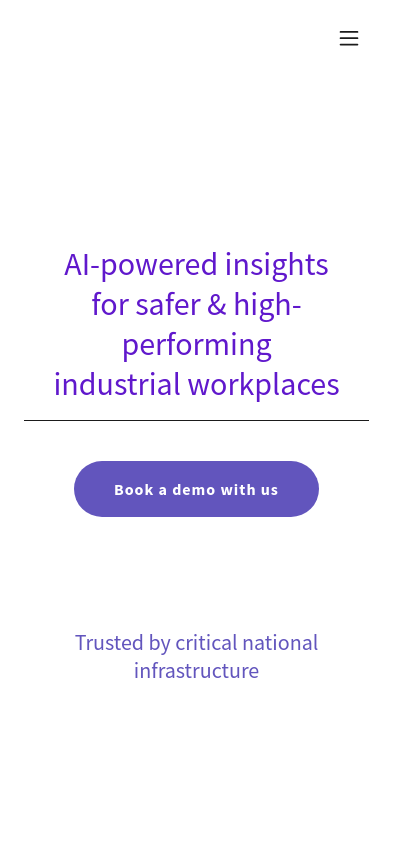
RoboK Limited develops ADAS & Autonomous Driving solutions focusing on reliability and safety for advanced driving systems.
RoboK's Key Focus Area:
RoboK is a computer vision start-up based in Cambridge, UK, with its primary mission centered on enhancing industrial workplace safety and performance using artificial intelligence (AI). The company specializes in transforming the operational effectiveness of critical infrastructure through the deployment of AI-powered insights derived from on-site CCTV cameras.
Unique Value Proposition and Strategic Advantage:
The unique value proposition of RoboK is the integration of AI with industrial CCTV infrastructure to automate and optimize safety monitoring and operational efficiency. By leveraging existing camera infrastructure, the company offers a cost-effective solution that transitions traditional manual monitoring processes into automated, AI-driven systems. This approach presents several strategic advantages:
- Optimization of Existing Infrastructure: By utilizing existing CCTV infrastructure, the need for additional hardware investment is minimized, making the solution not only innovative but economically feasible for their clients.
- Privacy-Preserving Technology: The emphasis on privacy-conscious development sets RoboK apart, ensuring their technology aligns with data privacy regulations and client expectations for data security.
- Actionable Insights: The transformation of onsite visual data into high-value insights allows for better decision-making and operational improvements across various industrial sectors.
Delivery on Value Proposition:
RoboK delivers its promise through the SiteLens™ platform, which enables several key capabilities:
- Always-On Incident Monitoring: The platform provides continuous monitoring capabilities by analyzing video streams to identify potential safety breaches and incident hotspots.
- Automated Safety Compliance: AI algorithms are applied to detect, classify, and categorize safety breaches, facilitating compliance tracking and reducing human labor in monitoring roles.
- Behavioral Analysis: The system monitors dwell times and asset tracking, identifying anomalies that could indicate inefficiencies or safety risks in real-time operations.
- Operational Insights & Reporting: SiteLens™ integrates with existing operational data to measure the effectiveness of changes and policies, providing key performance indicators (KPIs) and enabling data-driven decisions.
- Scalable and Integrative Approach: By integrating the AI platform with a client’s existing operational data systems, RoboK's services become integral to operational frameworks with minimal disruption.
By engaging customers with a freemium trial through demo requests, RoboK ensures potential clients can directly perceive the transformation capabilities of their AI solutions. The company's strategic approach focuses on fostering long-term partnerships with critical infrastructure operators, leveraging robust analytics and compliance monitoring to maintain continuous improvement and competitive advantage in industrial settings.
Cruise Automation
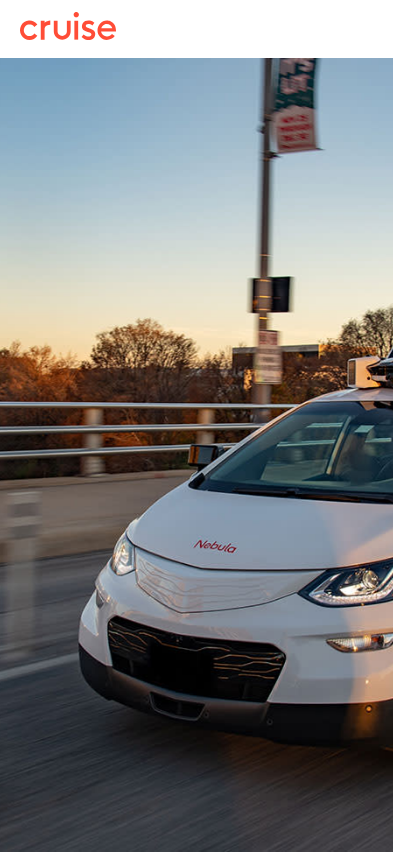
Cruise is developing advanced driverless technology to enhance road safety and community welfare, with plans for supervised autonomous driving expansion and all-electric vehicle initiatives.
Cruise is a company focused on developing autonomous vehicle (AV) technology, aiming to enhance transportation safety and accessibility. Their strategic advantage and unique value proposition lie in their commitment to creating self-driving vehicles that not only improve people's lives by offering safer, cleaner, and more convenient transportation solutions but also contribute to community welfare through social impact programs.
Key Focus Area:
- Autonomous Vehicle Technology: Cruise is dedicated to building advanced driverless cars equipped with over 40 sensors and 360° vision capabilities designed to ensure safety and efficiency on the road.
- Expansion in Metropolitan Areas: The company is progressively implementing its self-driving technology in cities such as Houston, Dallas, Phoenix, and the Bay Area, indicating a focus on urban transportation enhancement.
Value Proposition and Strategic Advantage:
- Safety and Efficiency: Cruise emphasizes the safety of its operations, integrating rigorous safety standards into all stages of development and testing. Their vehicles calculate multiple routes per second, ensuring optimal path selection to handle unforeseen driving conditions effectively.
- Community Integration and Support: Cruise stresses being a responsible partner in the communities they serve. Through initiatives like "Cruise for Good," which uses their all-electric fleet to support social causes, they aim to positively impact local societies.
- Commitment to Accessibility: By focusing on all-electric and autonomous vehicle services, Cruise seeks to create a more inclusive transportation solution that supports individuals with limited access to traditional driving options.
Delivery Mechanism:
- Structured Testing and Deployment: Cruise employs a phased testing approach, starting from manual driving to mapping and creating high-fidelity maps, moving to supervised autonomous driving with safety drivers, and ultimately progressing towards fully driverless operation.
- State-of-the-art Technology: The technological backbone involves extensive sensor data collection and real-time data processing to safely navigate city streets, supported by continuous software updates and machine learning models.
- Community and Regulatory Partnerships: Cruise works closely with city officials and regulatory bodies to ensure a compliant and community-focused roll-out of their services. They have measures in place for ongoing dialogue and partnership with key stakeholders, which include regulatory engagements and community integrations.
In conclusion, Cruise promises advanced safety and operational efficiency through its robust technological and strategic framework, aiming to redefine urban mobility. Their expansion is done in coordination with community and regulatory partners to ensure a positive impact and to help realize the broader mission of making roads safer and transforming how cities manage transportation needs.
Oxbotica

The article discusses a company’s commitment to delivering self-driving technology solutions, enhancing safety and efficiency in transportation, and collaborating to meet industry-specific needs.
Oxbotica, now rebranded as Oxa, is primarily focused on advancing self-driving technology through its software solutions, which aim to make autonomous vehicles (AVs) operationally viable across various sectors and environments globally.
Key Focus Area:
Oxa’s principal focus is on developing and deploying autonomous vehicle software that can be integrated into any kind of vehicle. This includes passenger transportation, industrial logistics, goods delivery, energy sectors, and extending AV capabilities even to challenging environments without reliance on GPS.
Unique Value Proposition and Strategic Advantage:
- Universal Autonomy: Oxa emphasizes a "Universal Autonomy" philosophy—a software approach that ensures any vehicle can drive autonomously under any conditions. This flexibility is intended to provide secure, efficient self-driving capabilities without hardware and environment constraints.
- Safety First: Safety is ingrained at every stage of Oxa’s operations, from design and testing to deployment. Their safety framework includes continuous monitoring and data analysis to ensure safe AV operations, a unique selling point for building trust with clients and regulators.
- Scalability and Adaptability: The modular architecture of their software platform allows for integration with existing hardware and business systems, enabling clients to benefit from future innovations without disruptive overhauls.
- Strategic Partnerships: Collaborations with key industry players such as bp for refinery operations, Beep for US shuttle services, and Ocado for online grocery logistics enhance Oxa’s market reach and application diversity.
Delivering on Their Value Proposition:
- Customizable Solutions: Oxa's platform provides a range of adaptable solutions from complete autonomy stacks to specific integration components. It manages autonomous fleets, enhancing operational efficiency while lowering costs.
- Accelerated Deployment: Through tools like Oxa MetaDriver, which uses advanced AI for rapid simulation and testing, Oxa facilitates quicker deployment and verification of AV technologies. Virtual testing minimizes energy use and simulates complex scenarios to refine vehicle responses before real-world application.
- Sector-Specific Innovations: Oxa is involved in pilot projects, such as autonomous shuttle services in cities like Jacksonville and regions like Belfast Harbour, showcasing their capability to transform transport infrastructures. They are setting the groundwork for AV acceptance while providing opportunities for large-scale implementation.
- Commitment to Collaboration: By engaging stakeholders across industries, from transport authorities to technology innovators, Oxa ensures a collaborative approach to regulatory compliance and public trust building—vital for widespread AV integration.
Oxa effectively combines strategic partnerships, safety emphasis, and scalable solutions to advance autonomous vehicle technology, aiming to unlock efficiencies and sustainability in transportation across industries worldwide. Their strategy centers on building a robust ecosystem around AV capabilities, pushing boundaries while securing operational trust among users, policymakers, and the broader public.
Locus

Locus is an intelligent decision-making and automation platform for logistics. It uses AI to help businesses map out their logistics.
Locus Robotics is a company focused on optimizing warehouse operations using robotics and artificial intelligence. It offers a variety of solutions aimed at enhancing productivity, efficiency, and safety within warehouse environments across several industries.
Key Solutions:
-
Warehouse Picking: Locus's autonomous mobile robots (AMRs), known as LocusBots, assist workers by guiding them to reduce non-value-added tasks like unnecessary walking. This direction optimizes picking rates and significantly increases units picked per hour (UPH).
-
Putaway: The company's platform facilitates efficient returns and restocking, using AI to interleave tasks within workflows. This strategy is aimed at minimizing aisle congestion, enhancing worker productivity, and allowing cross-training for multiple roles.
-
Transport: Flexible robotic transport systems replace traditional fixed conveyors, reducing unproductive walking and freeing workers for more valuable tasks. LocusBots can operate seamlessly across multiple levels and adapt quickly to changing warehouse demands.
-
Mezzanine Management: The system's intelligent features direct fulfillment tasks across multi-level warehouse setups to maximize throughput.
Industry Focus:
- Third Party Logistics (3PL): Locus helps 3PLs meet high-volume fulfillment demands by integrating with warehouse management systems without necessitating major changes to infrastructure.
- Retail & eCommerce: The retailer-dedicated solutions help manage the accelerated demands from eCommerce trends through automation.
- Healthcare: In healthcare, Locus aims to ensure accuracy and timely delivery of medical supplies using their robot-assisted fulfillment system.
- Industrial: The solution targets efficiency in B2B operations like automotive and manufacturing, improving order fulfillment and adaptability to future demand fluctuations.
Platform and Services:
-
LocusOne: This is a data science-driven warehouse automation platform enabling seamless deployment and management of AMR fleets for enterprise-level operations. It integrates workflow optimization with AI and business intelligence tools to enhance performance.
-
Robots-as-a-Service (RaaS): This flexible model allows customers to scale their robotic solutions according to demand, providing cost-effective access to AMRs without substantial upfront investments.
Resources and Training:
-
The company provides a range of educational resources including webinars, podcasts, whitepapers, and case studies detailing the impact and deployment strategies of their robotics solutions.
-
Locus University offers ongoing learning and development resources to help employees grow professionally and adjust to advancing technologies.
Corporate Information:
-
Founded by individuals with significant backgrounds in robotics and warehouse operations, Locus Robotics emphasizes heritage and deep experience in warehouse automation.
-
With a focus on innovation, the company aims to drive operational excellence through robotics in supply chain management.
Events and Thought Leadership:
- Regular webinars discuss advanced strategies like continuous warehouse optimization and robustness in logistics networks, showcasing their tools like LocusHub for business intelligence enhancement.
Customer Engagement:
- Demonstrating customer success through case studies, Locus highlights significant improvements in supply chain operations for clients such as DHL, boosting productivity and improving labor efficiencies.
Overall, Locus Robotics focuses on leveraging technology to transform warehouse environments, addressing modern logistical challenges with adaptable and scalable robotic solutions across various sectors.
HYPR

HYPR is an AI robotics company creating intelligent autonomous mobility robots that continuously learn and adapt to dynamic conditions, enhancing productivity by integrating new and existing data. HYPR builds intelligent autonomous mobility robots that improve in-house efficiency, continuously learning and adapting to maximize productivity.
Hypr.AI is a platform in development with aims to facilitate the interaction between businesses and artificial intelligence systems. The company focuses on leveraging AI technology to create efficient, secure, and scalable solutions that can be integrated across various business processes. Here’s a closer look at the main points from their initial outreach:
-
AI Integration: The platform emphasizes the importance of incorporating artificial intelligence into business operations. It aims to provide tools and services that help businesses automate tasks, analyze data, and enhance decision-making processes.
-
Scalability and Efficiency: Hypr.AI is dedicated to developing solutions that are both scalable and efficient. This means businesses of different sizes can adapt the tools to fit their specific needs, potentially increasing productivity and reducing costs.
-
Security: A key focus area is ensuring that AI tools and systems are secure, protecting businesses from data breaches and unauthorized access. The emphasis on security highlights the company's commitment to safeguarding sensitive information.
-
Comprehensive Solutions: The platform seeks to offer comprehensive AI-driven solutions that can be integrated into various facets of a business, including marketing, operations, and customer service. This integration aims to streamline processes and improve overall business performance.
-
Ease of Use: Although detailed specifics were not available, the company aims to design user-friendly interfaces that allow businesses to implement AI technologies without requiring extensive technical knowledge.
Hypr.AI's site is still under construction, and further details about its comprehensive range of services will likely be provided upon its official launch. In the meantime, potential users and businesses interested in AI integration can anticipate a platform designed to make AI technology more accessible for enhancing operational effectiveness and security.
DeepRoute.ai
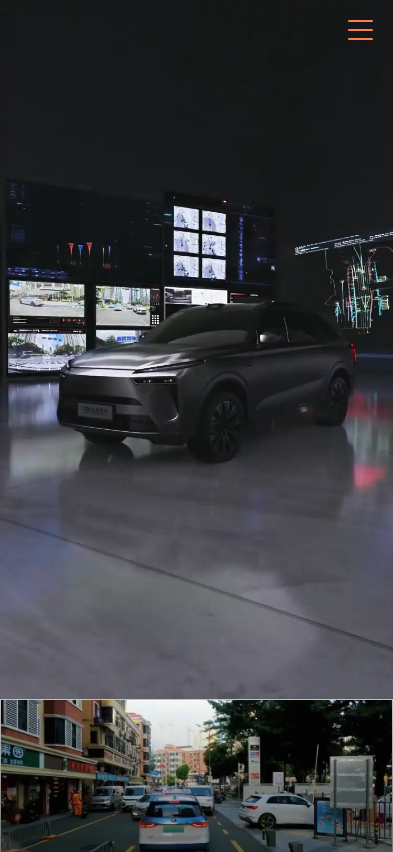
DeepRoute.ai specializes in full-stack autonomous driving solutions, developing Level 4 autonomous technology for various vehicle types to improve road safety and efficiency.
DeepRoute.ai is a company focused on the development of autonomous driving technology. The company is engaged in the creation of comprehensive solutions for self-driving vehicles, emphasizing safety, efficiency, and adaptability in their technological advancements. Through proprietary hardware and software, they aim to enhance urban transportation by reducing traffic congestion and providing safer driving options.
Key Areas of Focus:
-
Autonomous Driving Solutions:
- Development of a full stack of self-driving technology that integrates both hardware and software components.
- Utilization of advanced algorithms to support decision-making processes needed for navigation and traffic management.
- A modular design approach that allows for flexibility and adaptability across different vehicle models and road conditions.
-
Safety and Reliability:
- Emphasis on rigorous testing and evaluation processes to ensure the safety and reliability of autonomous systems.
- Adoption of multiple layers of redundancy and fail-safe mechanisms to mitigate technological failures and enhance safety standards.
-
Urban Traffic and Mobility:
- Focus on resolving issues related to urban congestion and movement efficiency.
- Development of technologies that can seamlessly navigate complex traffic environments and improve overall transportation flow.
Products and Services:
-
Autonomous Vehicles (AV) Systems:
- Deployment-ready AV kits designed to be integrated into various vehicle platforms.
- Specialized components such as LiDAR, radar, and cameras that support 360-degree perception and situational awareness.
-
Software Solutions:
- Comprehensive software suites that provide mapping, simulation, and data analysis services.
- Tools designed to improve the performance and accuracy of autonomous driving functions.
-
Collaborative Partnerships:
- Engagements with automobile manufacturers, technology companies, and urban planners to bring autonomous driving solutions to a wider market.
- Collaborative projects aimed at enhancing the integration of autonomous systems with existing urban infrastructure.
Vision and Strategy:
-
Innovation and Research:
- Commitment to continuous research and development to improve AI and machine learning capabilities.
- Exploration of new technological frontiers to advance the state-of-the-art in autonomous driving.
-
Market Deployment:
- Strategic plans for scaling operations and deploying autonomous solutions globally.
- Focus on market adaptability and the customization of products to meet local regulatory and environmental conditions.
DeepRoute.ai’s initiatives are structured towards shaping a sustainable future for urban mobility through autonomous technology. The company underscores the importance of collaboration with various stakeholders to ensure a seamless transition to autonomous transportation systems. Furthermore, the emphasis on safety, reliability, and innovation characterizes their approach to tackling modern urban transportation challenges.
Nytro.ai

Nytro.ai is mentioned in relation to technology that works best in modern browsers, implying their platform might involve advanced technologies or AI processes requiring up-to-date software for optimal functionality.
Nytro.ai primarily focuses on providing AI-powered solutions for enhancing sales readiness and onboarding processes. The company's offerings are designed to empower sales representatives with the ability to deliver effective sales pitches with confidence and conviction, with a particular emphasis on the integration of practice and real-time AI-driven feedback.
Key Focus Area
Nytro.ai is dedicated to improving sales efficiency and effectiveness through technology-enhanced training and onboarding. The core focus is on:
- Sales readiness and onboarding improvements.
- Pitch intelligence for both internal sales teams and outsourced sales partners.
- Ongoing training and development facilitated by AI technologies.
Unique Value Proposition and Strategic Advantage
Nytro.ai's unique selling point lies in its Pitch Intelligence platform, which utilizes AI and machine learning to evaluate the sales pitches of customer-facing representatives. This platform provides several strategic advantages:
- Automated Feedback: Offers immediate, unbiased feedback on pitch performance, focusing on areas like clarity, tone, and keyword usage.
- Performance Metrics: Allows organizations to assess individual and team performance against set benchmarks.
- Continuous Adaptation: Supports real-time updates and training for sales reps, ensuring they are always prepared to adapt to new products and market conditions.
Delivering on the Value Proposition
Nytro.ai delivers its proposition primarily through:
- AI-Powered Insights: Their platform analyzes sales pitches to deliver actionable feedback and metrics, thereby improving rep readiness.
- Seamless Integration: Integrates with existing Learning Management Systems (LMS) to enhance training and onboarding programs with hands-on pitch practice.
- Experiential Learning: Offers a real-world, practice-based approach to learning, which includes virtual pitch practices and sales competitions to boost engagement.
- Comprehensive Support for Various Stakeholders: Supports sales leaders, enablement teams, and customer success managers by providing tools and analyses pertinent to their roles.
- Gamified Learning: Incorporates elements of competition to increase motivation and deepen learning experiences among sales teams.
Nytro.ai's strategy revolves around creating a holistic learning environment that moves beyond traditional training methods by leveraging modern technology to keep sales representatives continuously prepared and capable of engaging with potential clients effectively. While the company highlights its integrations and unique AI-driven insights as critical differentiators, these claims should be scrutinized considering the promotional nature of the content.
NVIDIA
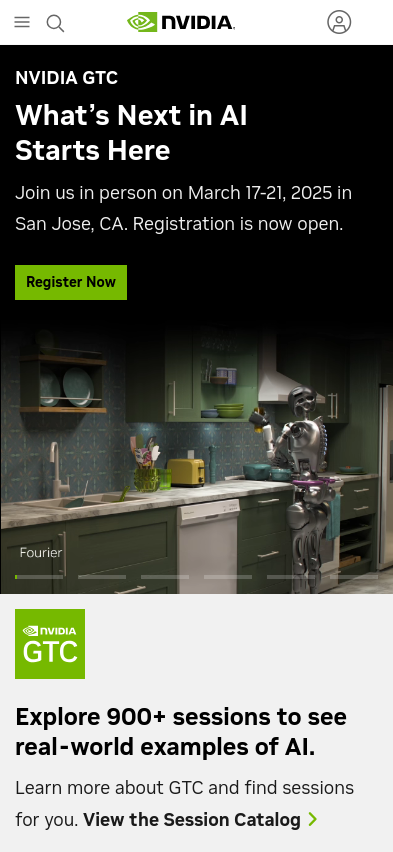
NVIDIA is a leading producer of AI hardware, renowned for its GPUs and plays a pivotal role in the AI chip market, being a revenue and volume leader.
-
Key Focus Area: NVIDIA's primary focus is on accelerated computing technology designed to power artificial intelligence (AI) and other computationally intensive tasks across various sectors. They cater to industries such as healthcare, automotive, gaming, manufacturing, and more, capitalizing on their hardware and software capabilities to optimize AI and data processing workloads.
-
Unique Value Proposition and Strategic Advantage: NVIDIA distinguishes itself by offering cutting-edge hardware like GPUs and AI supercomputers, and supporting software platforms that enable efficient AI computation and application. Their strategic advantage lies in the development of tailor-made solutions such as NVIDIA RTX, the Omniverse platform for 3D workflows and collaborative design, and cloud-based AI services. NVIDIA’s partnerships with key tech giants like Microsoft and Google for AI and data processing enrich their service offering, enabling comprehensive solutions for enterprise AI needs.
-
How They Deliver on Their Value Proposition:
-
Product Range: The company offers a wide spectrum of products, including GeForce graphics cards for gaming, the DRIVE platform for autonomous vehicles, and the DGX platform for AI training. Their offerings extend to software, such as the AI Enterprise suite and specialized AI tools for various industries.
-
Platform Initiatives: NVIDIA advances AI applications through initiatives like Project DIGITS, allowing local and cloud-based AI computational tasks, and Cosmos, which accelerates AI development for physical systems like robotics and autonomous vehicles. Their efforts in the metaverse, through the Omniverse platform, demonstrate their commitment to virtual simulation and 3D development.
-
Innovative Solutions: NVIDIA emphasizes high-performance computing (HPC) with solutions like CUDA-based parallel computing and deep learning frameworks that enhance scientific research and design processes. Their focus on delivering AI tools for sectors like healthcare and entertainment showcases their ability to impact diverse fields.
-
Collaborations and Partnerships: They strategically align with industry leaders such as Microsoft, Google, and Oracle to integrate their technologies into broader enterprise ecosystems. These collaborations enhance NVIDIA's reach and influence in deploying scalable AI solutions.
-
Training and Support: NVIDIA supports the adoption of its technologies through extensive resources, including technical training, support for developers, and comprehensive solution catalogs that facilitate easier implementation of their platforms and products.
-
These strategic initiatives enable NVIDIA to maintain its position in advancing AI capabilities and catering to an increasingly digital-first world, impacting industries by solving complex computational problems and innovating upon AI-driven solutions.
Mighty AI

Mighty AI provides training datasets and models for artificial intelligence applications. It focuses on computer vision and natural language processing to enhance machine learning capabilities.
Aurora Innovation Inc.: Overview and Strategic Insights
1. Key Focus Area: Aurora Innovation is primarily dedicated to the development and implementation of autonomous driving systems. The company's core product, the Aurora Driver, is a sophisticated autonomous driving technology designed for both freight and passenger transportation. They aim to revolutionize the logistics and ride-hailing sectors by integrating this technology into vehicles ranging from sedans to semitrucks.
2. Unique Value Proposition and Strategic Advantage: The central value proposition of Aurora lies in its high-level autonomous driving system, which promises enhanced safety, increased operational efficiency, and a more consistent driver supply.
- Autonomous Technology: The Aurora Driver's core strength is its advanced sensing and computing system, which can handle complex driving environments and integrate into a wide range of vehicles. Aurora's proprietary FirstLight Lidar extends visibility up to 400 meters, promising quick reaction times and safety.
- Industry Collaborations: Strategic alliances with industry leaders like Volvo, PACCAR, and Toyota, along with Uber for ride-hailing, demonstrate their commitment to a collaborative approach in scaling autonomous vehicle technology. These partnerships are crucial for developing vehicles that both accommodate the autonomous systems and are manufacturable at scale.
- Scalability in Freight: Aurora is developing freight solutions that address current challenges like driver shortages and efficiency. By offering technology that bypasses human driver limitations, they propose solutions that could significantly reduce transit times.
3. Delivering on the Value Proposition: Aurora achieves its strategic aims through several key initiatives:
- Comprehensive Autonomous System: The Aurora Driver combines a robust hardware and software architecture, employing high-definition mapping and simulation to teach and test its systems virtually, ensuring that the technology continues to learn and adapt.
- Pilot Programs and Real-world Testing: Using partnerships with logistics companies and automakers, they conduct pilots to integrate their technology into existing networks. These pilots help refine the autonomous systems for real-world conditions and help their partners transition smoothly into using the technology.
- Safety as a Cornerstone: Safety is emphasized through the company’s Safety Case Framework, which outlines the foundational safety underpinnings of their technology, development processes, and organizational behavior. This includes a safety management system that reviews and acts upon any reported concerns.
- Integration with Logistics Systems: The Aurora Driver supports logistics companies by offering seamless integration with existing transportation management systems. This allows businesses to adapt quickly and potentially realize efficiency gains.
- Commitment to innovation: Aurora continues to invest in technological advancement and scalability, backed by significant funding and strategic financial management.
In summary, Aurora Innovation positions itself as a trailblazer in autonomous technology with multi-industry applications. Their strategy is rooted in leveraging advanced technology, forming strategic partnerships, and prioritizing safety to drive adoption and transform both the freight and ride-hailing industries.